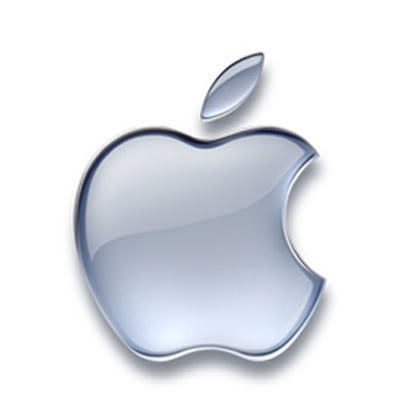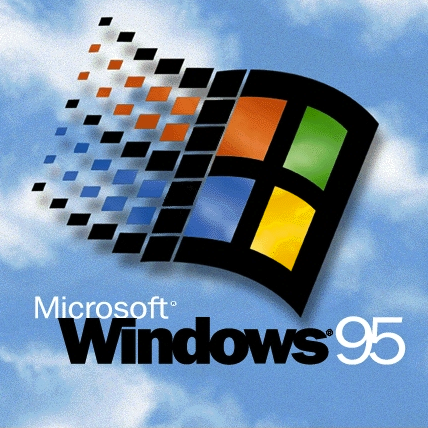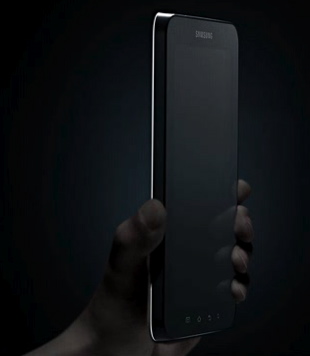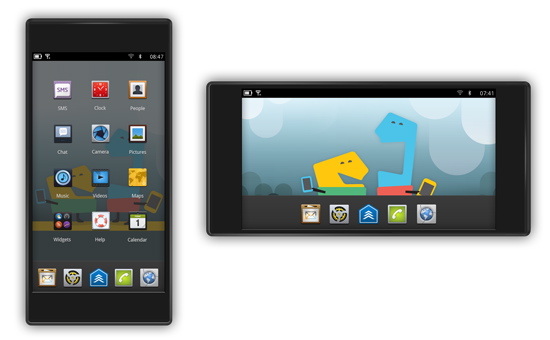
Netflix launches app for iPod touch, iPhone devices
Netflix on Thursday introduced a version of its application for the iPhone and iPod touch, allowing subscribers of the entertainment service to watch streaming content on their portable devices. The company already has a version of its application for the iPad, designed for the bigger screen of that device.
A subscription to Netflix is required, which starts at $8.99 per month. Nearly two thirds of its 15 million subscribers use some version of its online offerings, which also are available for PCs and select Blu-ray players and TV sets. It additionally gives Netflix a foothold in an increasingly competitive mobile entertainment market.

MIT lab creates giant robotic tadpoles for oil spill cleanup
The Sensable City lab at the Massachusetts Institute of Technology (MIT) is developing a solar-powered robot whose sole purpose is to clean up oil spilled into the water.
Seaswarm, as the robot design is called, is essentially a large robotic tadpole. The "head" of the robot consists of a solar collecting cell, which generates enough electricity to power the nanowire-covered conveyer belt "tail." The conveyor belt propels the robot, and the nanofabric on the surface of the belt can absorb 20 times its own weight in oil without becoming saturated with water. The oil sucked up onto the belt is then removed by heating it up and evaporating the oil into a container in the head of the robot.

Dell outbids HP for storage company 3PAR
Computer maker Dell will be acquiring virtualized storage company 3PAR for $1.6 billion, the companies announced Thursday. The announcement follows a bidding war for the company that took place between Dell and rival HP.
Dell increased its bid for 3PAR to $24.30 per share; considerably higher than the $18 per share offer it made one week prior. The bigger tender offer comes as an answer to a competing bid placed by HP just three days ago for $24 per share.

Introducing a new, more social Digg
Popular social link-sharing and bookmarking site Digg on Wednesday made its new, redesigned site available to all users after testing in an invitation-only mode for roughly four months.
"This redesign is a major revision of our platform -- front end to back end -- this is just phase one of what will be an on-going, iterative process, involving lots of input from all of you. We'll be pushing out features on a regular basis and tweaking often, "Digg founder and CEO Kevin Rose said on Wednesday. "Our goal has always been for Digg to be a place where people can discover and share content and conversations from anywhere on the web. With Digg v4, we are introducing a few things that will make discovering and discussing news a lot better."

Germany moves to ban bosses from checking your Facebook
In an age where just about anything is shared on Facebook, employers have turned to it and other social networking sites to ensure its employee's behavior is on the up and up. In Germany, that practice may become illegal.
German news outlets are reporting that Interior Minister Thomas de Maizière is working on new privacy legislation that would outlaw corporate snooping on social networking profiles. It would restrict the amount of information that current as well as prospective employers could gather and use.

Apple launching TV show rentals, new AppleTV at Sept. 1st event
Apple is in 'advanced' talks with News Corp, parent company of the Fox broadcasting network, over letting consumers rent its TV shows for 99 cents, Bloomberg has reported. CBS, NBC Universal, and Walt Disney, which owns ABC, are also said to be participating in those talks.
While the focus is expected to be how the new shows add entertainment options to Apple's preexisting line of products, the company is also likely to introduce the second generation of its AppleTV product. That would likely come with a smaller hard drive and a $99 price point, sources told the news service.

Google unveils voice calling through Gmail
Wednesday, Google officially announced that North American Gmail users can place voice calls to any phone number directly from their Gmail interface. The feature will roll out to all users in the next few days.
Users will be able to place totally free calls within the U.S. and Canada for "at least the rest of this year," and international calls for comparatively low rates. All outgoing calls originate from the user's Google Voice number, and calls can even be received within the Gmail interface.

Adobe updates Web-based Photoshop, no longer demands membership
Now approaching its third year online, Adobe's Web-based photo editing suite Photoshop Express underwent a significant redesign which launched Wednesday. Adobe Photoshop Express Editor, Organizer, and Uploader are included in the refresh.
Firstly, a Photoshop.com account is no longer needed to use Photoshop Express Editor. Users can simply navigate to the Web app, upload photos directly from their local drive, edit and change the photos, and then save them back on their local storage. Previously, an account was necessary, and photos were uploaded to online storage first before they were edited. This is still an option, as Photoshop.com members can still store and share photos online as well as create albums, but it's no longer the only way to use the Editor.

Mozilla launches Firefox 4 beta 4, rolls in Sync, Panorama tab manager
Mozilla Tuesday updated Firefox 4 to its fourth beta release, adding two major new features: Firefox Sync and Panorama.
Firefox Sync lets users access browser history, password keychain, bookmarks, and open tabs across their different desktop computers, iOS, or Maemo-based mobile devices. Sync is available as an add-in for Firefox 3.5 and 3.6, but in Firefox 4, it is a built-in feature.

Remembering Windows 95's launch 15 years later
Some moments are culturally defining. They pave the way for a generation of consumers. People of my parents generation still remember the Beatles appearance on the Ed Sullivan Show. I recall long lines to see the movie "Jaws," which gave A-movie status to scary B-movies. Many young adults of this generation will recall iPhone's June 2007 launch. Some moments define us. So it was this day 15 years ago. Windows 95 launched to long lines at midnight on Aug. 24, 1995.
Do you remember? Please share your Windows 95 story/memories in comments. Or send e-mail to joewilcox at gmail dot com. If I get enough good stories, I'll compile them into a separate post.

Samsung teases 7" Tablet for September 2
There has been a considerable amount of chatter about a potential contribution to the Android Tablet market from Samsung. Tuesday, the company started to mete out official teasers for the upcoming 7" Galaxy Tab and launched the device's official website at galaxytab.samsungmobile.com.
In Samsung's video today, the 7" tablet is briefly shown to include: Augmented Reality, Navigation, E-reading, HD Movie Playback, Flash support, full web browsing, "PC link web," video calling, Android 2.2, and what looks to be a rear-facing camera but no visible forward-facing one (though it's implied by "video calling".)

Intel and Nokia team up to begin work on open 3D interface for MeeGo
Chipmaker Intel and mobile phone leader Nokia Tuesday announced their partnership has extended into research and development, in a collaboration expected to last three years, and focus on future telecommunications solutions.
The first project will be aimed at creating user interfaces for mobile devices that are "more similar to interactions in the real world," and take advantage of the increased power of small, pocketable devices.

TiVo launches QWERTY remote
TiVo today has finally launched the full QWERTY TiVo Slide Remote control. The remote was extensively demonstrated at the TiVO Premiere launch in March.
"This is the first ever DVR remote with a full QWERTY keyboard, and we are certain that users will be excited to get their thumbs on it. The slick design has the same fun look of the classic TiVo remote, but makes it even easier to get more from your TV experience," Jim Denney, vice president and general manager of product marketing for TiVo said today.

Halo: Reach hacked, leaked weeks before anticipated release date
Halo: Reach, a prequel to Microsoft's billion-dollar Halo first person shooter series was scheduled to launch on September 14 worldwide, but a pre-release version of the game leaked early and has found its way across the Web.
The title, however, wasn't kept under tight lock and key.

PocketGear secures $15M to advance 'largest open app store'
PocketGear, the cross-platform mobile application retailer which acquired mobile app store Handango earlier this year, has closed a round of series B funding, which earned the company fifteen million dollars.
The round of funding was led by Trident Capital, and included investments from BlackBerry Partners Fund, and Google CEO Eric Schmidt's TomorrowVentures LLC.



